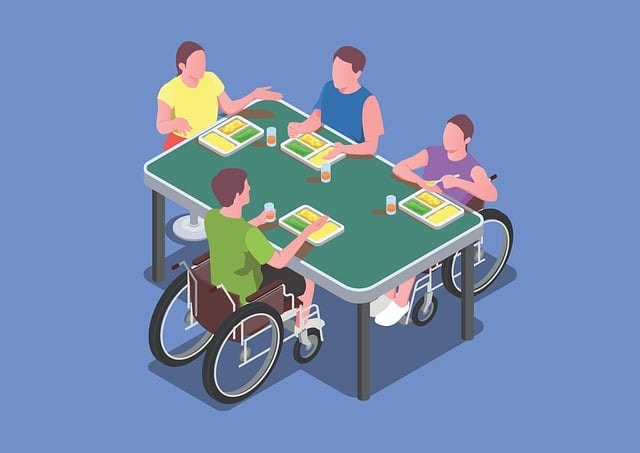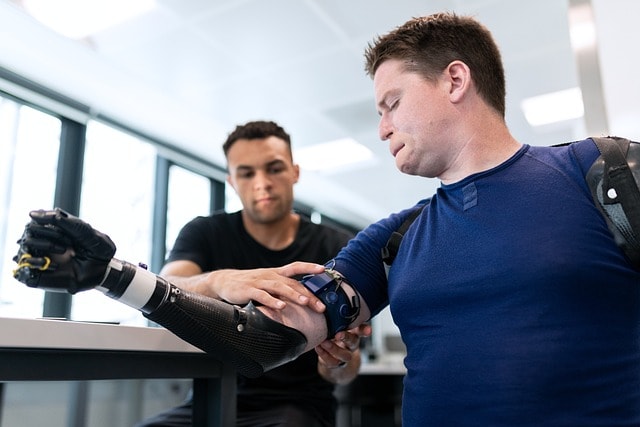Essential Guide to Finding the Right Lawyer for Disabled Individuals

Understanding Disability Benefits
- Learn about the various disability benefits available, including those for people with disabilities who are working or seeking employment.
- Discover how disability benefits can support individuals with disabilities and their families.
- Understand the eligibility criteria for disability benefits and how to apply to see if you are eligible.
- Explore the options for getting paid as a caregiver for a loved one with a disability.
- Find resources and job opportunities for people with disabilities and their families.
Legal Rights of Disabled Individuals

Understanding your legal rights is crucial for ensuring fair treatment and access to necessary resources. Several federal laws protect the rights of individuals with disabilities in various aspects of life:
The Americans with Disabilities Act (ADA) is a cornerstone of disability rights. It prohibits discrimination in the workplace, public spaces, and other areas and mandates that employers provide reasonable accommodations to employees with disabilities, ensuring equal employment opportunities.
The Rehabilitation Act of 1973 complements the ADA by focusing on employment and education. It requires that any program or activity receiving federal financial assistance must be accessible to individuals with disabilities.
The Individuals with Disabilities Education Act (IDEA) guarantees access to free and appropriate public education for children with disabilities. This law ensures that children with disabilities receive the support and services they need to succeed in school.
Housing rights are protected under the Fair Housing Act, which prohibits discrimination and requires reasonable accommodations in housing. This law ensures that individuals with disabilities have equal access to housing opportunities.
The Air Carrier Access Act makes air travel more accessible. This act requires airlines to provide accommodations for passengers with disabilities, ensuring a more inclusive travel experience.
The Voting Rights Act safeguards voting rights. It ensures that individuals with disabilities have equal access to voting, including accommodations at polling places.
Organizations like the Disability Rights Education and Defense Fund (DREDF) advocate for the rights of individuals with disabilities, providing resources and support to help navigate these legal protections.
Types of Disability Cases

Navigating the legal landscape for disability benefits can be complex, as there are various types of cases that individuals may encounter:
Social Security Disability Insurance (SSDI) cases involve claims for disability benefits based on an individual’s work history and income. These benefits support those who have paid into the Social Security system through employment.
Supplemental Security Income (SSI) cases focus on providing disability benefits based on income and resources, offering financial assistance to individuals with limited income who meet the eligibility criteria.
Workers’ compensation cases arise from work-related injuries or illnesses. They provide benefits to employees who are unable to work due to their condition. These cases ensure that workers receive the support they need during their recovery.
Personal injury cases involve claims for damages due to accidents or negligence, where individuals seek compensation for injuries that impact their well-being and ability to work.
Employment discrimination cases address instances of discrimination based on disability in the workplace. These cases ensure that individuals with disabilities receive fair treatment and equal employment opportunities.
Education cases focus on ensuring access to education for individuals with disabilities, addressing issues such as accommodations and support services in schools.
Housing cases involve claims related to access to housing for individuals with disabilities, ensuring they have equal opportunities to secure and maintain housing.
Healthcare cases address access to healthcare services for individuals with disabilities, ensuring they receive the necessary medical care and support.
Finding a Qualified Disability Lawyer

- Look for a lawyer with experience in disability law and a proven track record of success.
- Check if the lawyer is a member of disability-focused organizations or has received certifications in disability law.
- Research the lawyer’s reputation online and read reviews from past clients.
- Ask for referrals from friends, family, or disability support groups.
- Check if the lawyer offers free consultations or has a sliding scale fee structure.
Evaluating a Disability Lawyer’s Qualifications

- Check if the lawyer has experience working with clients with similar disabilities or needs.
- Evaluate the lawyer’s knowledge of disability laws and regulations, such as the Americans with Disabilities Act (ADA).
- Assess the lawyer’s communication style and ability to understand your needs and concerns.
- Ask about the lawyer’s approach to working with clients and their families.
- Check if the lawyer has a strong network of resources and connections in the disability community.
- Evaluate if the lawyer has experience with disability programs and can navigate the resources available to support your case.
Cost and Payment Options for Disability Lawyers

One of the primary concerns when seeking legal assistance is the cost. Fortunately, there are various payment options available to make hiring a disability lawyer more affordable:
Many disability lawyers offer free consultations to discuss your case and determine the best action. This initial meeting can help you understand your options without any financial commitment.
Some lawyers work on a contingency fee basis, meaning they only receive payment if you win your case. This arrangement can be particularly beneficial if you are concerned about upfront costs.
Other lawyers may charge hourly rates or flat fees for their services. Discussing these rates upfront is essential to understand the potential costs involved.
Organizations like the Legal Clinic for the Disabled offer free or low-cost legal services to individuals with disabilities, providing valuable support for those who may not afford traditional legal fees.
The cost of hiring a disability lawyer can vary depending on the complexity of your case and the lawyer’s experience. Some lawyers may offer payment plans or sliding scale fees to make their services more accessible.
Before hiring a lawyer, discussing payment options is crucial to ensure you understand their fees and any additional costs. This transparency will help you make an informed decision.
The Disability Rights Education and Defense Fund (DREDF) offers resources and information on finding affordable legal representation and helping individuals with disabilities access the legal support they need.
By understanding these payment options, you can find a disability lawyer who fits your financial situation and provides legal assistance.
Working with Your Disability Lawyer
- Understand the lawyer’s role in helping you navigate the disability benefits process.
- Learn how to communicate effectively with your lawyer and provide the necessary documentation.
- Ask about the lawyer’s approach to advocacy and how they will work to ensure your rights are protected.
- Discuss the lawyer’s fees and payment structure, and ask about any additional costs or expenses.
- Find out how the lawyer will keep you informed about the progress of your case and any developments in disability law.
Related Terms: center, office, hearing, deaf, qualify, search, gov, blind, inclusion, mission, cap, state













